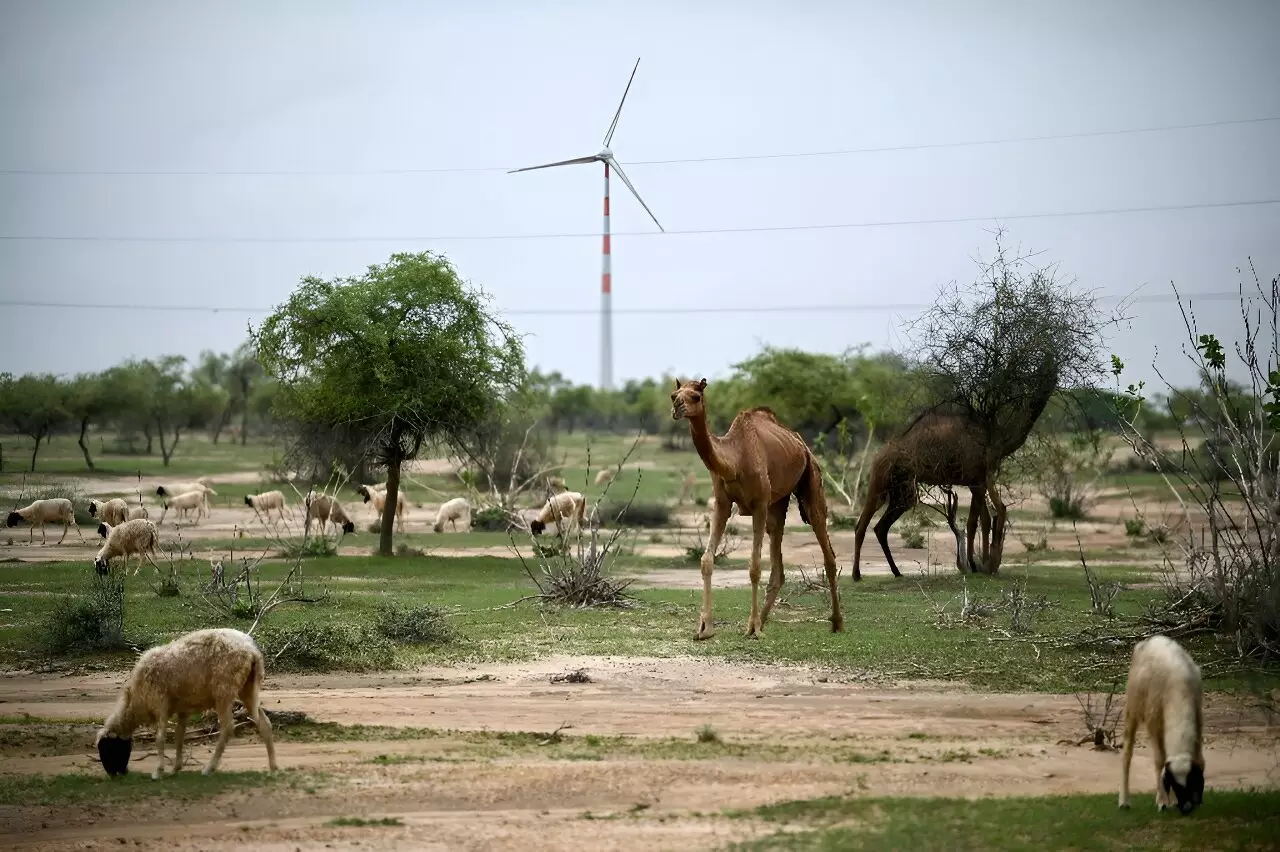India’s push towards renewable energy development, particularly in regions like the Thar desert in Rajasthan, raises critical questions about the impact on local communities and ecosystems. While the transition to non-fossil fuel capacity is crucial for combatting climate change, there are concerns about the cost borne by those living in areas designated for renewable energy production.
As highlighted by the case of 65-year-old livestock herder Nena Ram, the installation of wind turbines has disrupted age-old farming systems and led to the loss of grazing lands in western Rajasthan. The construction of wind farms by large companies like the Adani Group and Suzlon has taken away vital resources from indigenous communities, affecting their livelihoods and traditional practices. Despite claims of supporting local development projects, the reality on the ground paints a different picture of sacrifice for the greater good.
The rapid expansion of wind farms in the Thar desert has raised environmental concerns, particularly regarding the impact on biodiversity. The once common Great Indian Bustard, a locally revered species facing extinction, has suffered increased mortality due to collisions with power lines. Despite efforts to address these issues through underground lines in bird breeding zones, the government’s prioritization of renewable energy targets has overridden conservation measures.
Villagers in the Jaisalmer district, home to a significant number of wind turbines, face challenges such as power cuts and environmental degradation. The local population, dependent on agriculture and livestock-based economies, struggles with reduced access to grazing lands and declining milk production. Power outages exacerbate the hardships faced by communities, especially during scorching summer temperatures, highlighting the disconnect between renewable energy development and basic energy needs.
While companies like Adani and Suzlon claim to support community development around their wind farms, there are criticisms of their lack of consultation and consent from local residents. The appropriation of grazing lands for commercial purposes without adequate compensation reflects a disregard for the rights and needs of indigenous communities. The promise of benefits like health and education projects falls short in addressing the fundamental concerns of land ownership and resource access.
India’s ambitious targets for renewable energy expansion raise questions about the trade-offs between development goals and environmental sustainability. The need for a more inclusive and participatory approach to renewable energy projects, one that prioritizes the voices of affected communities and ecosystems, is essential for achieving a truly green transition. Balancing the imperatives of climate action and social justice requires a reevaluation of current policies and practices in the renewable energy sector.
The case of renewable energy development in India’s Thar desert underscores the complexities and contradictions inherent in the pursuit of sustainability. While the transition to non-fossil fuel capacity is a global imperative, it must be pursued in ways that uphold the rights and well-being of all stakeholders, including indigenous communities and fragile ecosystems. Critical reflection on the impacts of renewable energy projects is essential for shaping a more equitable and ecologically responsible energy future.

